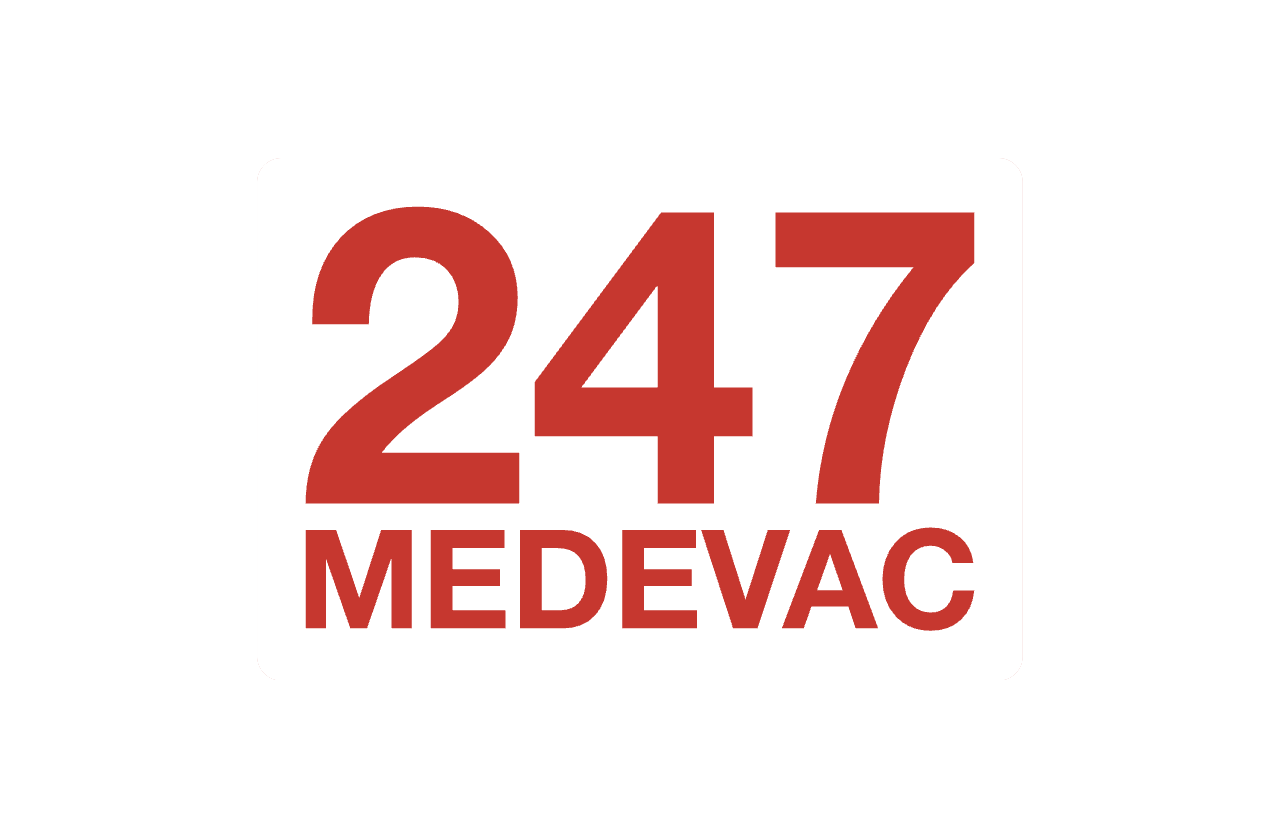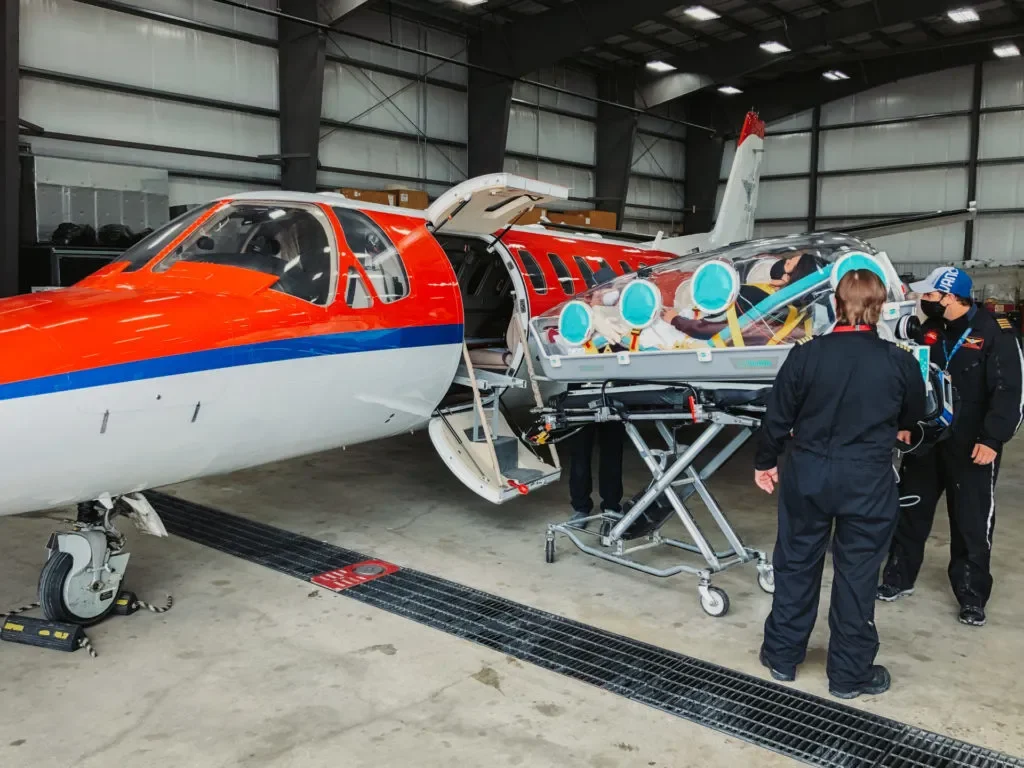Infectious Disease Transfers (Air Ambulance)
When a patient is diagnosed with a serious infectious disease while abroad, the challenges of ensuring safe and timely medical transport become far greater than those of a standard air ambulance mission. Infectious disease transfers require highly specialized procedures, equipment, and training to protect not only the patient but also medical crews, flight staff, and the wider public. The stakes are high: patients must be provided with appropriate care during their transfer, while containment protocols must eliminate the risk of transmission. Air ambulance services capable of conducting infectious disease transfers are therefore essential in today’s interconnected world, where outbreaks, pandemics, and isolated cases of dangerous pathogens can occur in any region.
Infectious disease transfers involve moving patients who may be suffering from conditions such as tuberculosis, COVID-19, SARS, Ebola, Lassa fever, or other highly transmissible illnesses. In some cases, the patient may be stable but requires specialized isolation for travel, while in others the patient may be critically ill, needing intensive care support in addition to infection control. Unlike normal medical transport, these missions require the use of isolation equipment such as transport isolation pods or negative pressure units, which fully contain the patient while allowing medical staff to provide care through built-in access points. These devices maintain a sealed environment, preventing pathogens from escaping into the cabin while ensuring the patient remains stable throughout the journey.
The process of arranging an infectious disease transfer begins with a thorough risk assessment. Physicians and infectious disease specialists evaluate the patient’s condition, the level of contagion, and the protective measures required. The air ambulance is then prepared accordingly, with equipment including isolation units, personal protective equipment (PPE) for staff, and dedicated disposal systems for contaminated materials. Every member of the medical and aviation crew must be trained in infection control, ensuring that the highest safety standards are followed from the moment the patient is collected until they are handed over to the receiving hospital.
One of the most complex aspects of these transfers is securing the necessary permissions from governments and health authorities. Not every country allows inbound or outbound flights carrying infectious patients, and in some cases, special exemptions must be obtained. 247 Medevac’s operations team liaises directly with ministries of health, airports, and international organizations to ensure that all legal and regulatory requirements are met. This careful coordination ensures that the transfer is not delayed and that the receiving hospital is fully prepared to admit the patient upon arrival.
During the transfer itself, the patient is placed inside an isolation system such as a portable biocontainment unit. These systems are equipped with their own ventilation and filtration technology, ensuring that pathogens cannot escape. Medical staff wear full protective clothing and provide monitoring, medications, and interventions as required. For critically ill patients, equipment such as ventilators, infusion pumps, and monitors can be integrated with the isolation system, effectively creating a self-contained airborne intensive care unit. Continuous monitoring allows the medical team to respond to any changes in the patient’s condition while maintaining strict infection control protocols.
For families, the idea of an infectious disease transfer can be frightening, particularly if a loved one is far from home in a country with limited medical resources. 247 Medevac provides reassurance by managing the entire process, from hospital bed to hospital bed, with professionalism and compassion. Regular updates are provided to families, and support is offered to navigate the additional complexities of quarantine requirements, border regulations, and hospital admissions. For insurers, corporations, and governments, 247 Medevac acts as a trusted partner, ensuring that infected individuals are transported safely without putting others at risk.
Infectious disease transfers can be required in a variety of scenarios. Travelers who fall ill abroad may need to be repatriated to their home country for advanced care. Humanitarian organizations may require evacuations of healthcare workers who become exposed while working in outbreak zones. Governments may arrange transfers for citizens requiring urgent specialist treatment not available locally. In each case, the challenge is to balance patient care with public safety, and this is where the expertise of 247 Medevac is essential.
The logistics of these missions are often highly demanding. In addition to securing clearances and preparing equipment, extensive contingency planning is required. Weather, air traffic, or unexpected changes in the patient’s condition can all present risks that must be mitigated. Alternative airports, backup equipment, and redundant systems are built into every plan, ensuring that the mission can proceed safely even if unforeseen issues arise. Once the aircraft lands, ground ambulances prepared for infectious disease transport are used to carry the patient directly to the receiving hospital, completing the chain of secure transfer.
The receiving hospitals themselves must also be equipped to handle infectious patients. 247 Medevac ensures that detailed communication occurs before departure, with full medical reports and infection control requirements shared with the hospital in advance. This means that isolation rooms, specialist teams, and protective protocols are ready when the patient arrives. The handover is conducted according to strict procedures, minimizing any risk of exposure.
Technology continues to play a key role in the safe transfer of infectious patients. Modern isolation units are lighter, more compact, and more efficient than ever before, making transfers faster and safer. Telemedicine integration allows infectious disease specialists on the ground to provide real-time guidance to crews in the air. GPS tracking, real-time communications, and digital reporting ensure that every stakeholder is kept informed throughout the mission. 247 Medevac remains at the forefront of adopting these technologies, ensuring that its service reflects the latest standards in medical and infection control practice.
For insurers and corporate clients, infectious disease transfers provide a reliable and compliant solution to duty of care obligations. In an era where employees and travelers are increasingly mobile, companies must be prepared to respond to infectious disease risks anywhere in the world. By partnering with 247 Medevac, organizations gain access to a global resource capable of mobilizing at short notice, securing permissions, and ensuring both patient care and public safety.
For governments and health authorities, the availability of infectious disease air ambulance transfers is an essential part of national preparedness. Whether evacuating citizens during an outbreak, relocating patients to designated treatment centers, or supporting international relief efforts, these missions provide a lifeline that protects both individuals and populations. 247 Medevac has the scale, expertise, and global network to support governments in these critical operations.
At its core, infectious disease transfer by air ambulance is about striking the balance between humanity and safety. It is about ensuring that patients receive the care they deserve without compromising the health of others. It is about enabling global mobility while protecting communities from risk. These missions require not just aircraft and equipment, but also experience, judgment, and compassion.
247 Medevac is proud to provide this service, combining aviation expertise, medical excellence, and international coordination. With highly trained teams, access to specialized equipment, and a worldwide operational reach, the company ensures that infectious disease transfers are handled with the highest standards of safety and professionalism. For patients, it provides hope and access to advanced care. For families, it provides reassurance during a time of uncertainty. For insurers, corporations, and governments, it provides a trusted solution to one of the most complex challenges in modern medical transport.
Every infectious disease transfer represents more than a journey; it represents a commitment to global health, patient dignity, and collective safety. 247 Medevac embodies this commitment, standing ready to assist wherever and whenever these specialized missions are required.

